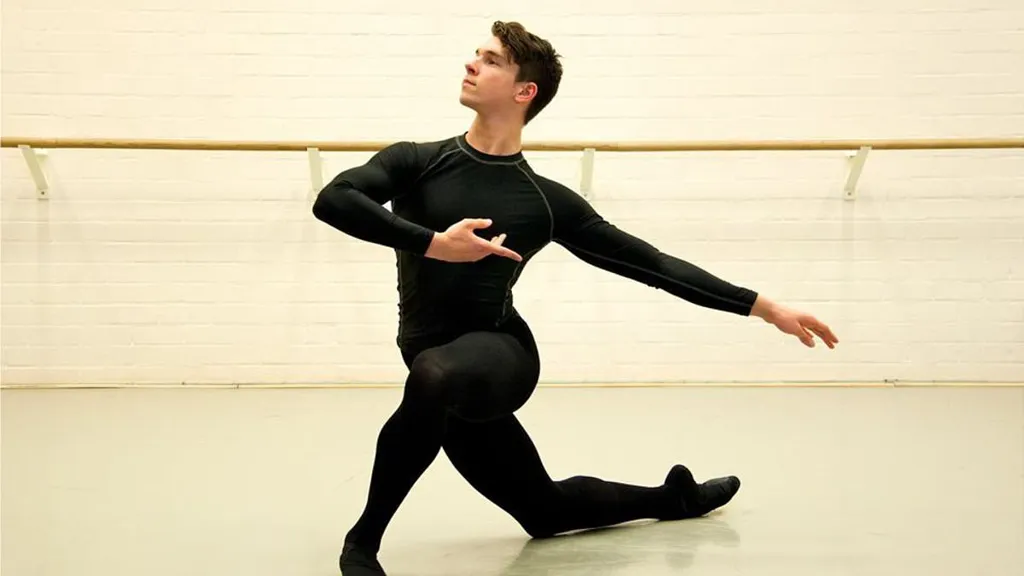A former West End ballet dancer is suing the Met Police for £600k, claiming that a foot injury during an unjustified stop and search 'wrecked his premier league career'.
Alexander Loxton, 36, insists that he suffered severe damage to his ankle during an 'aggressive' stop and search by officers when he visited London's Kennington police station to retrieve a stolen motorbike helmet visor in September 2016.
Prior to the incident, the acclaimed performer had played the role of 'older Billy' in the hit West End musical Billy Elliot, danced with the Royal Ballet and even performed at Buckingham Palace for the late Queen's 80th birthday.
But his incredible time in the spotlight was to be sadly short-lived - with Mr Loxton ultimately forced to ditch his dreams of stardom.
The devastating demise of his 'premier league' career was, he claims, as a result of the damage to his ankle hindering his ability to execute the extreme jump manouevres required at such an elite level.
Now, the former ballet dancer is suing Met Commissioner Sir Mark Rowley for almost £600,000 in compensation for the averse impacts the injury caused, alleging that the stop and search was undertaken with unreasonable and unnecessary force.
However, the Commissioner has denied all liability, claiming that such force was due to Mr Loxton failing to cooperate with the officers who detained him and that his career was already plummeting prior to the incident.
Central London County Court heard that Mr Loxton was confronted by officers after he decided 'on the off-chance' to see if a motor scooter that had been stolen from him was being held in a gated area behind the police station.
An officer demanded to see identification but Mr Loxton questioned why this was necessary. The officer then proceeded to 'take hold of his arm and force his left arm behind his back', Mr Loxton's barrister Fiona Murphy claimed.
An additional four officers were then called to assist with the search, with Mr Loxton said to have been handcuffed, searched and then 'slammed' against a wall, where he was allegedly 'struck with blows'.
While against the wall, one of the officers was also alleged to have 'repeatedly stamped his foot on Mr Loxton's ankle' leaving him with permanent damage to the ligaments.
Following the ordeal, Mr Loxton was said to have suffered from severe feelings of 'distress, anxiety, embarrassment, humiliation and degradation', alongside soft tissue injuries in his thumb, wrist and fingers.
However, lawyers for the Met insist that the former dancer had acted with a 'rude and aggressive demeanour' when officers had asked him to move on.
Defence barrister Robert Talalay described the force used by the five officers at the scene as 'reasonable and proportionate', adding that it had been Mr Loxton’s own 'behaviour that made the force used necessary and at that level'.
Mr Talalay declared that when officers asked to search Mr Loxton he had walked away and refused to cooperate with their demands, prompting one officer to 'place his foot on Mr Loxton’s left foot to keep him in place'.
Describing the former dancer as a 'strong young man', Mr Talalay added that he was 'actively and forcefully restricting the search' and had become 'the author of his own fate'.
The former ballet dancer is suing Met Commissioner Sir Mark Rowley for almost £600k in compensation for the averse impacts the injury caused. Mr Loxton alleges the stop and search was undertaken with unreasonable and unnecessary force.
In his younger years, MrLoxton enjoyed an impeccable classical ballet education at London's prestigious Royal Ballet Upper School, accumulating several awards and scholarships due to his incredible skillset.
While also taking on a leading role in Billy Elliot, he appeared in numerous TV and film roles and also played Peter Rabbit at the Queen's 80th birthday garden party.
The ballet prodigy was considered to posses both 'the ability and tenacity to establish a successful professional career in premier league ballet companies and, in alternative, with West End musical and film productions', Mrs Murphy explained.
But the injury he sustained following the stop and search was, she claims, both 'permanent and career-ending'.
She added that despite intensive rehabilitation efforts, Mr Loxton was ultimately left unable to cope with the work required of such high brow performers, facing 'particular difficulties in the areas of jumping, changing direction and landing'.
But Mr Talalay insisted that while MrLoxton had 'initially showed great promise', his career had began to steadily decline from January 2014 'due to three things: injury, refusal by him to work for what he considered low pay, and limited opportunity'.
He added thatMrLoxton’s own behaviour and resistance of the search that day ‘made the force used by officers necessary and at that level’.
The case continues.
